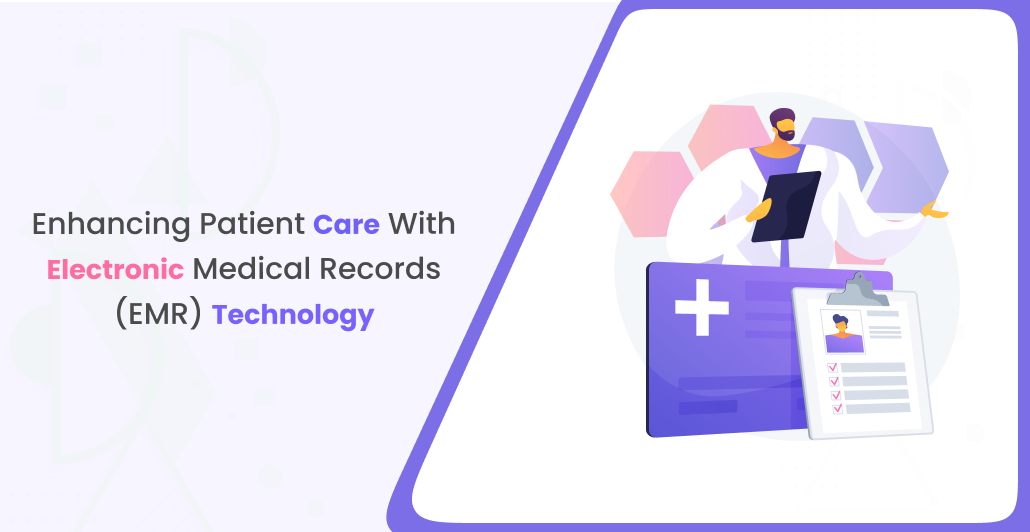

The EMR/EHR is a digital version of the classic paper logbook. It automates not only the documentation of the activity but also adds a massive amount of multimedia. On the other hand, a much more common technology, EHRs, or Electronic Health Records, allows physicians and other health professionals to collect, process, and share patient data securely and efficiently. Digitalization of health records was given birth to enhance the quality of care of patients, to enable healthcare professionals to communicate, and to streamline the management process. EMRs not only organize patient data but also facilitate best practice decision-making, as well as working safely and efficiently within healthcare settings. This paper focuses on the merits, limitations, and strategies related to the implementation of EMR technology which is highly transformative to patient care and health delivery.
Electronic Medical Records (EMRs) differ from traditional paper charts in some aspects.
EMRs are important because they are electronically stored making them accessible to authorized healthcare providers from multiple locations. However, maps on paper are physically stored and can only be accessed at the place where they are kept.
EMRs have a hierarchical approach to data being retrieved, also that such data can be analyzed. They may thus comprise a wide spectrum of data, including such details as medical history, present medicinal regime, allergies, laboratory findings, and imaging reports. Unlike, paper charts which might need manual careful searching and are prone to mistakes and may be lost also, charts designed electronically are much more efficient.
EMRs facilitate information exchange and cooperation among care providers in healthcare. In this regard, personnel with authorized privileges are allowed to view and edit patient information to achieve the desired improvement of standards while avoiding overlaps in the care process. Different from the traditional charts, they can be shared easily and up-to-date but may cause delays in communication and also errors.
To ensure that EMRs among other safeguards designed explicitly for encryption and access controls. Textual tables on paper tend to be more fraud-proof than a computer system, which might get lost, stolen, or accessed by a malicious person.
The EMRs boost efficiency by getting rid of a lot of paperwork and automating routine tasks. They can remove the costs associated with market storage and retrieval. Along with the greater time and resources dedicated to keeping paper records, the management of digital charts is also much easier to handle.
EMR-s are an integral part of the Hospital Management System, which means that it has several features that are incorporated- patient care, administration works, and financial accounting. Along with the pick of the best electronic health records software, healthcare organizations are also dependent on EMRs to provide all the benefits; consequently, this will improve patient care.
Although the EMR technology has gone through many milestones and the adoption has spread all over the world, over the last decade. The first EMRs did nothing more than recreate paper charts in digital form, but now, they are full-fledged systems that perform many functions in support of healthcare delivery.
In the initial phase of deploying EMRs, they were used to mainly record the information of patients, which made it easy for healthcare providers to store patient data on the digital platform and facilitate documentation processes. Nevertheless, these primeval cases had their drawback of shortage of functionalities and interchangeability.
Along with the development of technology, electronic medical records system have undergone significant changes in functionality, offering new features and capabilities. The integration world with other healthcare systems, such as laboratory information systems and picture archiving and communication systems (PACS), was the case of the organizations increasingly, with this, data exchange could be done smoothly across systems and platforms.
The arrival of cloud computing further stimulated the distortion of EMR technology to the extent that it can store data in one place and remote access to those records is possible now. Cloud-based EMR systems are scalable, flexible, and cost-effective, bringing them to various sizes of healthcare landscape.
Over the last few years, the development of new AI technologies has made the integration of artificial intelligence (AI) technologies in EMR popular. AI-enabled EMR institutions have done this by using AI machine learning algorithms to analyze large volumes of patient data, identify patterns, and generate insights that support clinical decision-making and bring about positive patient outcomes.
In India, EMR demand has been witnessing ballistic growth due to the urgent need for better health care services and to improve medical care standards. Several companies offer AI-based EMR solutions that can be tweaked to fit the requirements of the Indian healthcare industry. Selecting the finest AI-powered EMR in Best AI-Enabled EMR In India is a crucial decision that takes into account features like functionality, interoperability, user-friendliness, and the adopted regulatory measures.
The journey of benefits to electronic medical records (EMR) technology from its rise to its acceptance has been facilitated by a blending of technological advances, regulatory requirements, and changing healthcare needs.
The first dominant trend is now engaging in interoperability achievement owing to unrestrained data exchange among different healthcare units and providers. The EMR solutions that are interoperable allow doctors to access and share the patient information that is available to them across different healthcare settings.
The other one is the combination of telemedicine and remote patient monitoring features of online electronic medical records systems are unique. This trend is even more evident during the Covid-19 pandemic which revealed the need for remote healthcare delivery and virtual consultations, as an alternative to direct contact with patients.
Digitalization in the Indian healthcare system is gradually evolving, propelled by government programs, to improve digital literacy and the awareness of EMR advantages. Developments of EMR in India are directed toward solving the specific issues of the Indian healthcare industry, namely, the diversity of patient groups, scarcity of resources, and legislation. Along with that, the main contenders of the Indian market are the formation of EMR Software In India solutions according to indigenous requirements of healthcare providers in India like multi-specialty hospitals, clinics, and primary care centers.
To summarize, Electronic Medical Records (EMRs) have revolutionized the way healthcare is being delivered as they bring forth many great advantages like improved accessibility of patient data, streamlined clinical workflows, and enhanced communication among healthcare providers. EMR technology is on the way to progress thanks to the development of interoperability, telemedicine, and patient engagement capabilities that make electronic medical records in healthcare provided more efficient and patient-centered. Nevertheless, EMR introduction may be accompanied by several problems, such as cost considerations and data protection issues.